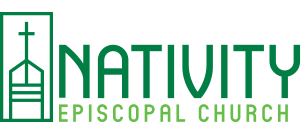As I walked out of the forty story office building onto the busy sidewalks of New York I could feel my energy shifting from meeting fatigue to the energy that pulsates from this city that I love. I know for many it is overwhelmingly crowded, noisy, and at certain times of the year foul smelling. I, however, love the humanity. In my experience there are few places that have such a cacophony of human beings. And no better place for me to expand my capacity to stretch myself to really see people.
“To see and be seen – that is the truest nature of love – the energy that exists between people when they feel seen, heard, and valued; when they can give and receive without judgment; and when they derive sustenance and strength from the relationship.” – Brenè Brown
My journey of the work to truly see people began when I lived in Berkeley. While not on the scale of New York, it too embodies a vast expanse of humanity. It was not just the geography, but more importantly the companionship of a person who unabashedly challenged me to see them, and through them to see others in ways I had not before.
All of us view the world through lenses. Those lenses are made up in part through the scripting of the environment we are raised in. Those lenses provide a way for us to see, categorize and understand. As such our lenses, the way we see and understand the world, have an inherent bias.
Frankly I had no idea that I had a particular set of lenses until it was brought to my attention. Awareness, however, was only the first step. It was critical for me to do a deep dive into what I was seeing, and even more importantly what I was not seeing. What would it look like if I truly embraced the call to respect the dignity of every human being. This was the beginning of my work on racism and sexism.
Today I had the great blessing to preach at the ordination to the episcopate for this person who first challenged me to see them. They, like thousands of others, have not been seen in the Episcopal Church (and in society) because of their gender, their ethnic background, and a myriad of other reasons due to the shallow bias-laden lenses of others. This is a great day, if not more accurately stated, “finally!” day.
The great Quaker-educated Parker Palmer suggests, “The human soul doesn’t want to be advised or fixed or saved. It simply wants to be witnessed — to be seen, heard and companioned exactly as it is.” Our world is filled with people that for far too long have not been seen. I am glad that we are finally beginning to see inspiring young poets, a female person of color becoming Vice President, and today a Japanese American woman becoming a Bishop in the Episcopal Church!
May we live like this.
May we see each other for who we are, for what we are.
May we face each other,
Seeing and being seen.
Loving and being loved.
May we see all of each other.
May we see all of us.
May we be seen. Omid Safi, Professor /Author
Source: Bishop Brian Prior – To See And Be Seen
